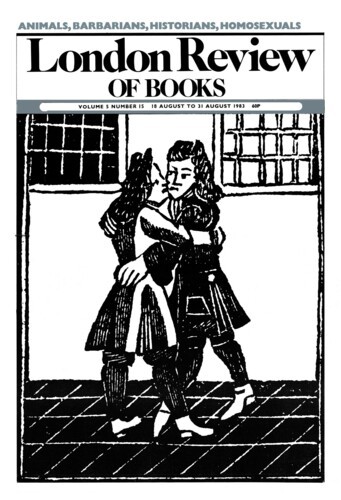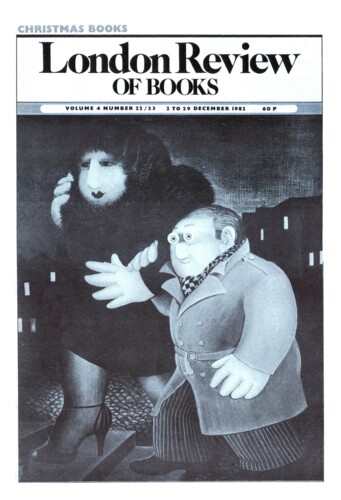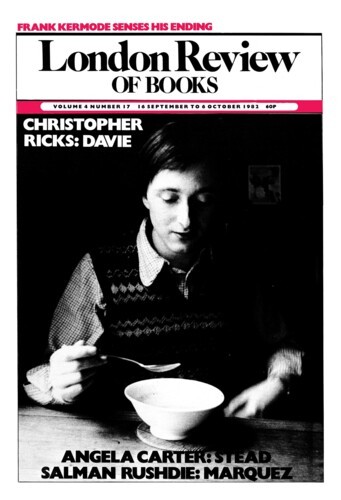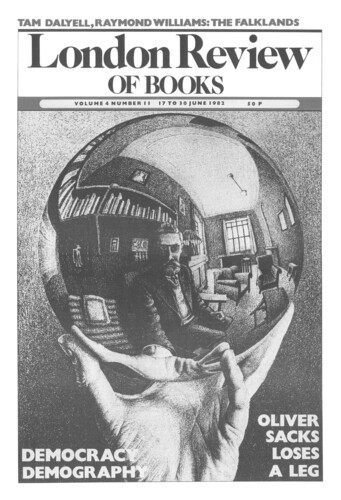Speaking well
Christopher Ricks, 18 August 1983
Unlike the publication in 1975 of the touching acute letters of Cyril Connolly to Noel Blakiston, the publication of Connolly’s Journal (1928-1937) does not serve him, except right. He found D.H. Lawrence insufficiently magnanimous (‘Notice how carefully Lawrence refuses to recognise virtue in anyone but himself’), and his sponsor David Pryce-Jones now finds F.R. Leavis much the same, so it may be legitimate to cite the famous excoriation of Bloomsbury that was voiced by Lawrence and amplified by Leavis: ‘they talked endlessly, but endlessly – and never, never a good thing said. They are cased each in a hard littte shell of his own and out of this they talk words. There is never for one second any outgoing of feeling and no reverence, not a crumb or grain of reverence: I cannot stand it.’ The reason why ‘never a good thing said’ was such a good thing to say is that it aligns speaking well with speaking well of others. In that world, a very special thrill attached to speaking ill of one’s friends.–





